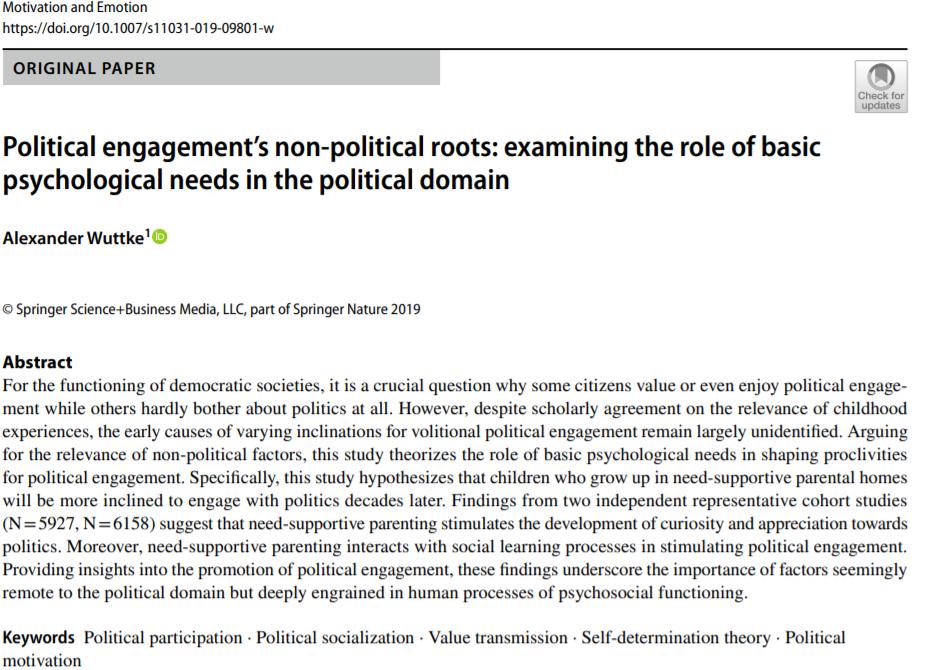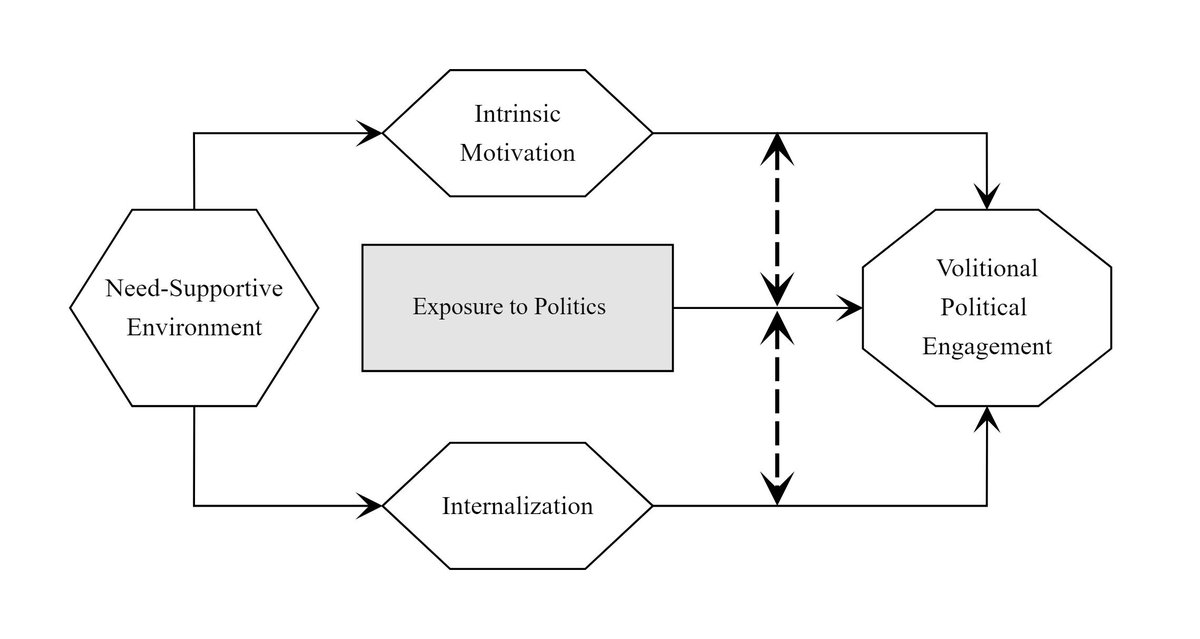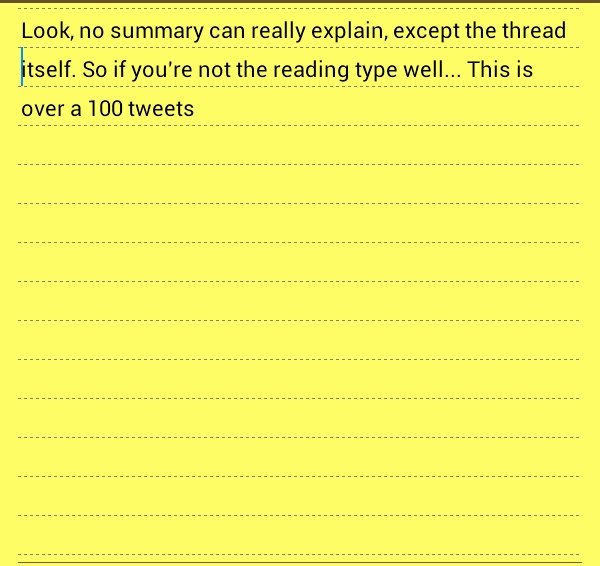Why do some people grow into liking politics?
I propose that the seemingly non-political concept of basic psychological needs helps to explain the origins of valuing & enjoying pol. engagement link.springer.com/article/10.100…

Why? Where do dispositional differences in wanting to engage with politics come from?
Often, those individuals who meet the criteria of good citizenship (e.g., politically aware & engaged) also fare well on other indicators of social attainments (e.g. income, education).
Is it coincidence, mutual influence, common cause?
Hence,something must be happening in the early years that shapes our orientations towards the political domain for the decades to come.
The deprivation of these needs thwarts the human inclination for curiosity & social adaptation
Long before respondents reached adulthood, different instruments were used to measure whether parents provide an environment that is conducive to satisfying basic psychological needs.
View-only article: rdcu.be/bRpeo
Pre-Print: alexander-wuttke.de/wp-content/upl…












